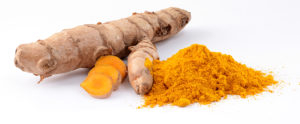 The spice turmeric is a very popular supplement nowadays, believed to have all sorts of health benefits due to the curcumin in it (e.g. that it is anticancer, anti-Alzheimer's, anti inflammatory). And yes, studies in the lab (in vitro and in vivo) look very promising. However, a large 2017 review of existing studies also found evidence that "curcumin is unstable under physiological conditions and not readily absorbed by the body, properties that make it a poor therapeutic candidate". In other words, the hype for curcumin supplements is not matching the reality, especially or probably because it is so poorly absorbed by humans. But researchers keep trying. And keep in mind that turmeric has other compounds in it also - it is not just curcumin and nothing else.
The spice turmeric is a very popular supplement nowadays, believed to have all sorts of health benefits due to the curcumin in it (e.g. that it is anticancer, anti-Alzheimer's, anti inflammatory). And yes, studies in the lab (in vitro and in vivo) look very promising. However, a large 2017 review of existing studies also found evidence that "curcumin is unstable under physiological conditions and not readily absorbed by the body, properties that make it a poor therapeutic candidate". In other words, the hype for curcumin supplements is not matching the reality, especially or probably because it is so poorly absorbed by humans. But researchers keep trying. And keep in mind that turmeric has other compounds in it also - it is not just curcumin and nothing else.
A "double-blind, placebo-controlled clinical trial" is the best evidence for something being effective. That means a study where people are randomly assigned to groups, no one actually knows who is getting what, and there is a placebo group that is getting a "sham" treatment. A recent study did exactly that in testing a new formulation of curcumin (Theracurmin) that was easily absorbed (bioavailable) by the persons participating in the study.
And yes - they found health benefits, specifically improvements in memory and attention in those persons taking the curcumin supplements over a 18 month period (as compared to those taking a placebo and whose memory and attention deteriorated over that time). The subjects (who were between 50 and 90 years of age) did not have dementia at the start of the study, but were showing signs of "normal aging" or had mild neurocognitive disorder. Brain scans (before and after treatment) suggested that the behavioral and cognitive benefits from curcumin were associated with "decreases in plaque and tangle accumulation in brain regions moduating mood and memory" - so it had anti-inflammatory and/or anti-amyloid brain effects.
So... Stay tuned. Meanwhile, perhaps frequent eating of foods containing turmeric may also have beneficial effects, as some studies suggest. From Science Daily:
Curcumin improves memory and mood
Lovers of Indian food, give yourselves a second helping: Daily consumption of a certain form of curcumin -- the substance that gives Indian curry its bright color -- improved memory and mood in people with mild, age-related memory loss, according to the results of a study conducted by UCLA researchers. .... Found in turmeric, curcumin has previously been shown to have anti-inflammatory and antioxidant properties in lab studies. It also has been suggested as a possible reason that senior citizens in India, where curcumin is a dietary staple, have a lower prevalence of Alzheimer's disease and better cognitive performance.
The double-blind, placebo-controlled study involved 40 adults between the ages of 50 and 90 years who had mild memory complaints. Participants were randomly assigned to receive either a placebo or 90 milligrams of curcumin twice daily for 18 months. All 40 subjects received standardized cognitive assessments at the start of the study and at six-month intervals, and monitoring of curcumin levels in their blood at the start of the study and after 18 months. Thirty of the volunteers underwent positron emission tomography, or PET scans, to determine the levels of amyloid and tau in their brains at the start of the study and after 18 months.
The people who took curcumin experienced significant improvements in their memory and attention abilities, while the subjects who received placebo did not, Small said. In memory tests, the people taking curcumin improved by 28 percent over the 18 months. Those taking curcumin also had mild improvements in mood, and their brain PET scans showed significantly less amyloid and tau signals in the amygdala and hypothalamus than those who took placebos. The amygdala and hypothalamus are regions of the brain that control several memory and emotional functions. [Original study.]

 As we know, chronic inflammation is linked to cancer and other diseases. It is long-term persistent low-grade inflammation, and it has a "wear and tear" effect on the body. What causes chronic inflammation? Being overweight or obese, sedentary lifestyle, Western (low fiber, high processed foods and meat) diet, chronic illnesses, viruses or bacteria (e.g., gum disease), smoking, air pollution, stress, excessive alcohol intake. It often does not have symptoms, but doctors can test for C-reactive protein levels (CRP), which increase when the body is inflamed. So you absolutely want to lower chronic inflammation if you can.
As we know, chronic inflammation is linked to cancer and other diseases. It is long-term persistent low-grade inflammation, and it has a "wear and tear" effect on the body. What causes chronic inflammation? Being overweight or obese, sedentary lifestyle, Western (low fiber, high processed foods and meat) diet, chronic illnesses, viruses or bacteria (e.g., gum disease), smoking, air pollution, stress, excessive alcohol intake. It often does not have symptoms, but doctors can test for C-reactive protein levels (CRP), which increase when the body is inflamed. So you absolutely want to lower chronic inflammation if you can.